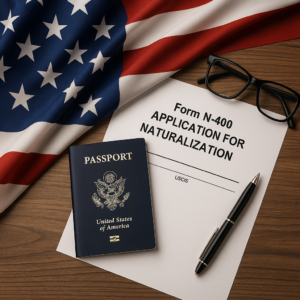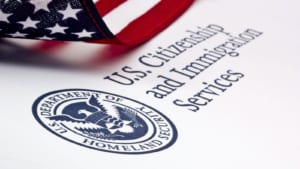Expediting a Petition (i.e. I-130 Petition for Alien Relative or I-129F Petition for Alien Fiancé or Fiancée) with the United States Citizenship and Immigration Services (“USCIS”) can be challenging. There are limited circumstances in which USCIS may consider expediting a Petition that is currently undergoing processing at one of its service centers. Here are some general steps you can take:
- Understand USCIS Criteria for Expedited Processing:
The USCIS has specific criteria for expediting a Petition that has already been filed. Not all requests are granted. Generally, expedited processing is considered for cases involving severe financial loss, emergent situations, humanitarian reasons, or compelling USCIS interest. You will need to demonstrate that your case meets one of these criteria.
- Contact USCIS Customer Service:
You can contact USCIS customer service to inquire about the possibility of expediting your case. Be prepared to explain the circumstances that warrant expedited processing and provide supporting documentation.
- Submit a Request for Expedited Processing:
If you believe your case meets the expedited criteria, you can submit a request to USCIS. Include a cover letter explaining the reasons for the expedited request and any supporting documents. Be sure to clearly state why your case qualifies for expedited processing based on USCIS criteria.
- Provide Supporting Documentation:
Depending on the reason for the expedited request, you may need to provide evidence such as medical records, financial documents, or other supporting documentation. Make sure the documentation is relevant to the criteria you are citing.
- Seek Congressional Assistance:
In some cases, individuals facing significant delays with USCIS in reviewing petitions can seek assistance from their U.S. senators or representatives. Congressional offices may be able to inquire about the status of your case with USCIS.
- Consult an Immigration Attorney:
If you are facing challenges or if your case is particularly complex, consider consulting with an immigration attorney. They can provide guidance on your specific situation and help you navigate the process.
Remember that expedited processing is not guaranteed, and USCIS will evaluate each request on a case-by-case basis. It’s important to be truthful and provide accurate documentation to support your request.
If you have questions about expedited processing or want help, contact us at info@enterlinepartners.com and speak with a U.S. immigration attorney in Ho Chi Minh City, Manila and Taipei.
Ho Chi Minh City, Vietnam Office
146C7 Nguyen Van Huong St, Thao Dien Ward,
District 2, Thu Duc City
Ho Chi Minh City, Vietnam
Tel: +84 933 301 488
Email: info@enterlinepartners.com
Facebook: Enterline & Partners – Dịch vụ Thị thực và Định cư Hoa Kỳ
YouTube: @EnterlineAndPartnersConsulting
Website: http://enterlinepartners.com
Manila, Philippines Office
Tel: +63 917 543 7926
Email: info@enterlinepartners.com
Facebook: Enterline and Partners Philippines
Website: https://enterlinepartners.com/language/en/welcome/
Copyright 2023. This article is for information purposes only and does not constitute legal advice. This article may be changed with or without notice. The opinions expressed in this article are those of Enterline and Partners only.




